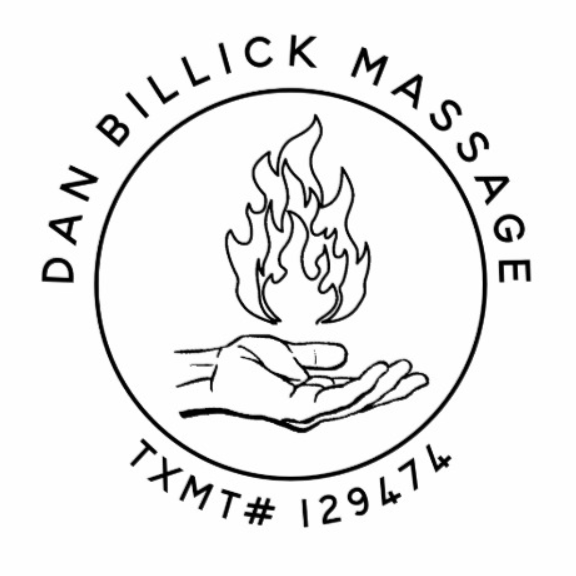History of Massage
2700 BC - China
Although the text was written between 722 - 481 BC, “The Yellow Emperor’s Classic Book of Internal Medicine” is a culmination of traditional Chinese medical techniques dating back to 2700 BC. This text features some of the earliest written record of massage techniques & applications.
2330 BC - Egypt
The Tomb of Akmanthor (aka “The Tomb of the Physician”) depicts men receiving therapy on their hands and feet. This same mural places Egyptians as the founders of modern Reflexology techniques.
1800 BC - India
Hindus created the traditional holistic medical system of India (“ayurveda”) to include regular massage and therapeutic touch as critical parts of good health. Ayurveda suggests individuals living out of harmony with nature will incur illness and disease. When ill, a person must re-center their mind, bring balance to their physical self, and harmonize with their environment. Practicing meditation, aromatherapy, and relaxation demonstrate ayurvedic principles. Once a harmony is set, the body will begin to heal itself naturally. Massage is an important tool for maintaining one’s homeostasis.
1000 BC - Japan / China
Traditional Chinese medicine uses therapeutic touch or massage (“tui na”) to prevent illness and ward off disease. While visiting from Japan, Buddhist monks observe the value of “tui na” and return to Japan to practice their new-found healing techniques. The Japanese use “anma” (massage) along vital points and meridians on the body to support strong health.
760 BC - Greece
Both “The Iliad” and “Odyssey” make reference to massage with oils & fragrances to help facilitate rapid healing of wounds and muscle fatigue among soldiers.
700 BC - China
Massage is documented for medical use by one of China’s oldest physicians, Bian Que.
500 BC - Thailand
Traditional Thai massage is widely used as a healing protocol to combine elements of acupressure, reflexology, and yoga postures to alleviate illness and maintain good health. The person most credited as the founder of Traditional Thai massage, Jivaka Komarabhacca, is commonly referred to as “Father Doctor” in Thailand.
460 BC - Greece
”The Father of Modern Medicine” Hippocrates writes, “The physician must be experienced in many things, but assuredly in rubbing.”
581 AD - China
The Office of Imperial Physicians creates Department of Massage Therapy.
Middle Ages - Persia, Greece, Rome
Avicenna composes “The Canon of Medicine.” To this day, it is revered around the world as one of the most important medical texts ever written for the collection, translation, and combination of medical techniques from Eastern and Western healers. Avicenna includes massage therapy as an effective remedy for aches, illness, and disease.
1813 - Sweden
At The Royal Gymnastic Central Institute, Swedish physical therapist, Henrik Ling, uses “medical gymnastics” to begin development of modern day “Swedish Massage” techniques. However, it was not until much later on (1878), that Johan Georg Mezger would finalize & detail the “Swedish massage system” for widespread medical use.
1813 - Sweden
At The Royal Gymnastic Central Institute, Swedish physical therapist, Henrik Ling, uses “medical gymnastics” to begin development of modern day “Swedish Massage” techniques. However, it was not until much later on (1878), that Johan Georg Mezger would finalize & detail the “Swedish massage system” for widespread medical use.
1878 - Netherlands
Dutch physician, Johan Georg Mezger, completes Henrik Ling’s earlier bodywork techniques and creates the “Swedish massage system.” Dr. Mezger would go on to use French terms: effleurage (long, light strokes), petrissage (kneading), friction (deep rubbing), tapotement (rapid, percussive tapping), and vibration (rapid shaking) to specify various techniques.
1914 - 1918 (World War I) - Earth
Massage is widely used to treat shell shock and/or nerve injury.
1916 - OHIO, USA
Agnes Forbes becomes the first licensed massage therapist in the United States. Ohio is the first state to legislate the need for licensing.
1932 - FRANCE
Patients undergoing cancer treatment receive “Manual Lymph Drainage” therapy created by the Danish physiologist Emil Voder.
1937 - FRANCE
The practice of “Aromatherapy” is created by Rene Maurice Gattefosse after observing lavender’s healing properties on his self-inflicted burn.
1962 - CALIFORNIA, USA
Dick Price & Michael Murphy establish the Esalen Institute on the foundations of Buddhism & the Gestalt Method in order to explore human optimization. Esalen remains at the forefront of human health & wellness through massage training, retreats, & research.
1966 - PENNSYLVANIA, USA
Known around the world as one of the most influential health professionals of the last century, John Barnes creates the revolutionary “Myofascial Release Technique” after years of research.
1973 - ILLINOIS, USA
Dr. Fritz Smith devises the Zero Balancing technique for bringing equilibrium back to the body’s systems & physical posture.
1989 - AUSTIN, TEXAS, USA
David Lauterstein and John Conway establish The Lauterstein-Conway Massage School and Clinic (TLC). Today, TLC remains the only school in the United States to offer both basic and advanced training for their students. With over 60 years of years of practical massage & teaching experience, David Conway & John Lauterstein continue as respected leaders in the massage industry around the world.
In his latest book, “Life in the Bones," David Lauterstein offers a heartfelt tribute to the power of touch and his mentor, Dr. Fritz Smith.
1992 AD - USA
The Massage & Bodywork Licensing Exam (MBLEx) is recognized nationwide as a universal licensing requirement.





















